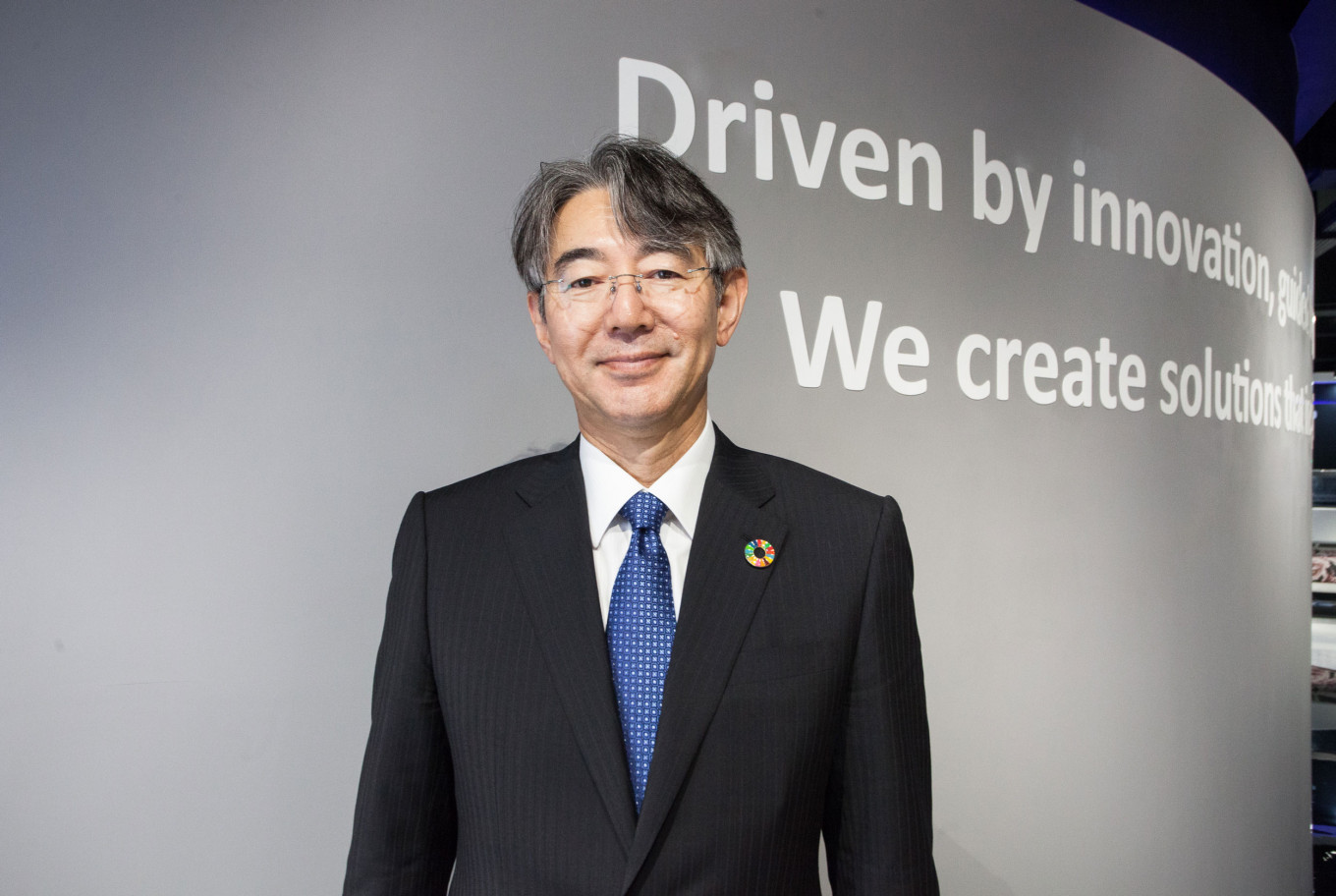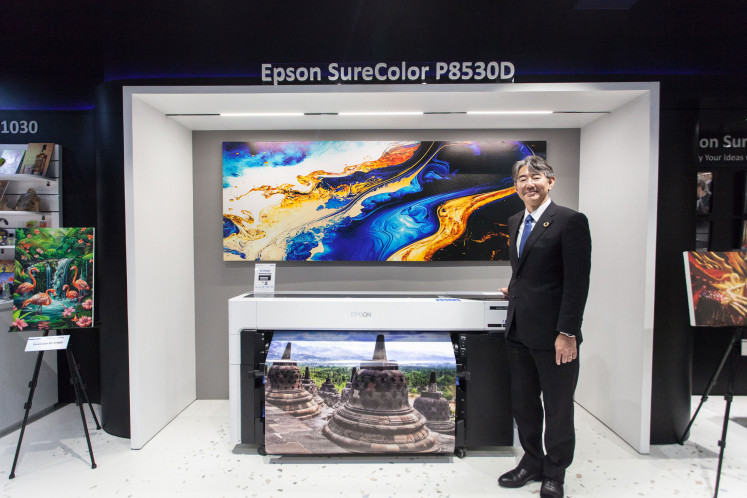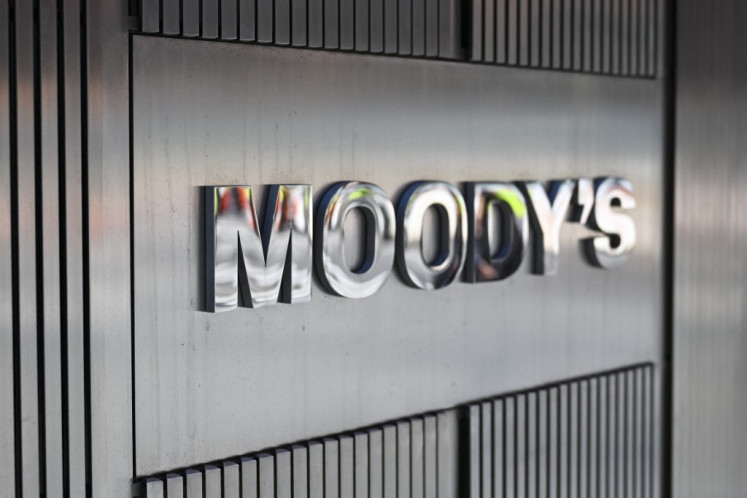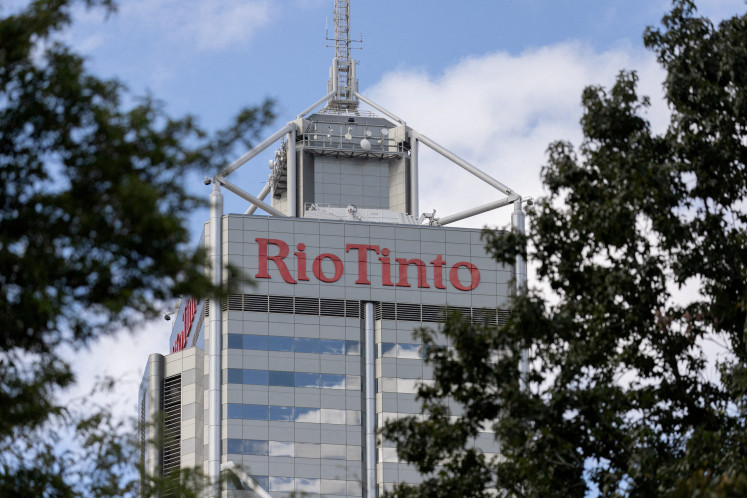Popular Reads
Top Results
Can't find what you're looking for?
View all search resultsPopular Reads
Top Results
Can't find what you're looking for?
View all search resultsEpson’s global president unveils Southeast Asia expansion plans centered on Indonesia
Change text size
Gift Premium Articles
to Anyone
J
unkichi Yoshida, the newly appointed global president, representative director and CEO of Seiko Epson Corporation (SEC), has revealed plans to expand the company’s business across emerging markets in Southeast Asia, identifying Indonesia as a key contributor to Epson’s global growth.
During an interview in Jakarta, Yoshida noted that demand for Epson products remained strong in the region, supported by rapid economic development. Southeast Asia was among the world’s fastest-growing regions, he said, driven by a large young population and an expanding middle class.
“Indonesia has enormous market potential, especially in the creative and printing industries. Through the PIN Experience Center, we aim to enhance collaboration with local partners like PT Pasifik Internusa [PIN] to deliver solutions that support both productivity and sustainability,” he said, after inaugurating the center, the largest Large Format Printing (LFP) solutions showroom in the region.
Yoshida was in Indonesia from Oct. 6 to 7 to strengthen ties with employees, partners and media while deepening his understanding of the local business landscape. His visit was a key milestone in reinforcing Epson’s commitment to Indonesia’s fast-growing market.
A company veteran who began his journey with Epson in 1988, Yoshida has held several strategic roles, including chief operating officer of the Printing Solutions Division. His deep experience in Epson’s core business areas positions him as a central figure in advancing the company’s global vision for innovation and sustainability.
Indonesia as a strategic growth and manufacturing hub
Yoshida emphasized Indonesia’s pivotal role in Epson’s global operations, in both production and sales.
The company has maintained a strong local presence, with more than 30 years of manufacturing and 25 years of sales and marketing operations in the country.
Epson operates two major factories: PT Indonesia Epson Industry (IEI) in Cikarang, West Java, and PT Epson Batam (PEB) in Batam, Riau Islands.
“These two manufacturing facilities play a central role in our global supply network,” Yoshida said.
The IEI factory, which spans 254,000 square meters, produces printers and employs around 10,900 workers, while the PEB facility covers 13,000 sq m, manufactures consumables and employs around 2,700 workers.
Through its operations in Indonesia, Epson contributes to strengthening local industries and economic growth by complying with the national local content requirements (TKDN). The company currently holds the highest TKDN ratios in both printers and projectors at 75 percent and 56 percent, respectively.
Indonesia was the first market to introduce Epson’s groundbreaking EcoTank printers, starting with the L100 and L200 models. Today, EcoTank remains a market leader worldwide, with over 100 million units sold.
Looking ahead, Yoshida reaffirmed Epson’s eagerness to further invest in Indonesia.
“We have an extensive network covering the entire Indonesian market in terms of sales, products and services. We will continue to invest in expanding the capacity and capabilities of our manufacturing facilities in Cikarang and Batam, which are crucial to our global supply network,” he said.
Epson also has plans to expand its projector and robotics businesses.
“From entertainment to high-end projection and from compact robotics to broader automation applications, not only in manufacturing but also in retail and other sectors, we will continue to broaden our relevance,” Yoshida said.
. (JP/Okky Ardya)Commitment to sustainability
Yoshida highlighted sustainability as central to Epson’s corporate philosophy.
"Sustainability has never been an afterthought; it is woven into our DNA,” he said, noting that Epson was the first Japanese manufacturer among RE100 member companies to fully transition to renewable energy across its global operations as of January 9, 2024, based on Epson research.
The company also collaborates closely with supply chain partners to ensure compliance with global environmental standards.
“Our products themselves contribute to sustainability,” Yoshida explained.
“Epson’s inkjet printers use less energy, reduce waste and minimize maintenance time with fewer replacement parts. As our business grows, so does our positive impact on the environment. That is our philosophy.”
Building on this, Epson’s LFPs are powered by proprietary Micro Piezo technology, which enables exquisite gradations, vibrant color accuracy and consistent print quality across media. Unlike analog printing, the digital printing process allows for shorter production cycles, making it ideal for short-run, high-customization jobs with faster turnaround and lower costs. The process also reduces the environmental impact by using less water, which in turn helps generate minimal waste.
Central to this approach is Epson’s Sho Sho Sei philosophy that focuses on precision, compactness and efficiency. These innovations aim to enrich lives and help create a better world.
Strengthening local partnerships and industries
He also expressed gratitude for Epson’s Indonesian customers.
“We appreciate their openness to adopting new technologies. That is why our market here continues to grow. We want to contribute not only to the economy but also to the people of Indonesia. Our goal is to grow together,” he said.
Ng Ngee Khiang, managing director of Epson Indonesia, said Yoshida’s visit and the inauguration of the PIN Experience Center “represent the highest form of appreciation and reinforce Epson’s strong commitment to our market and partners in Southeast Asia.”
“The new Experience Center, backed by our global leadership, will serve as a foundation to drive sustainable innovation and deliver solutions for Indonesia’s industries,” he added.
According to Ng, the center supports the growth of Indonesia’s commercial, industrial and corporate solutions ecosystem. This is a primary strategic focus for Epson Indonesia in the business-to-business segment.
“Our LFPs are key drivers for transformation and efficiency across various industrial sectors,” he said.
The center also highlights the vast potential of Indonesia’s textile industry, particularly the rapidly growing hijab and fabric-printing sectors as among the country’s most dynamic and creative sectors, which demand speed, color accuracy and a high level of customization.
Richard Pallar, CEO of PIN, stated: “We are honored to collaborate with Epson in establishing the PIN Experience Center. This showroom reflects our commitment to transforming Indonesia’s printing industry by offering comprehensive, innovative and sustainable solutions.
“By focusing on LFP technology, we are confident in becoming a game changer in the textile industry, especially in the modest fashion and hijab segments across Southeast Asia.”












